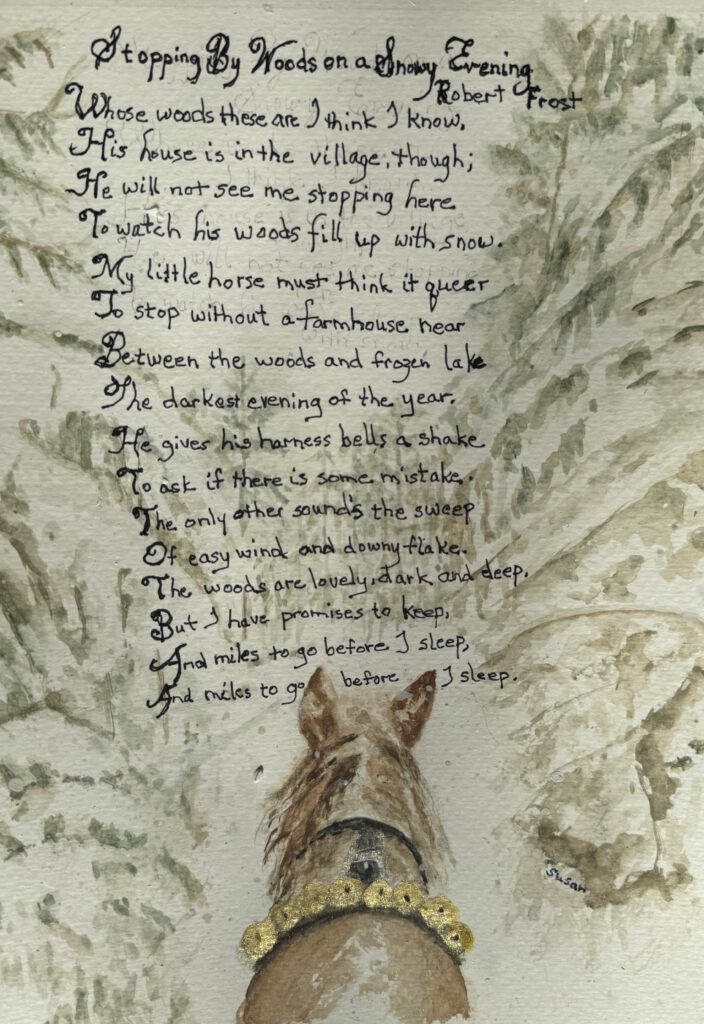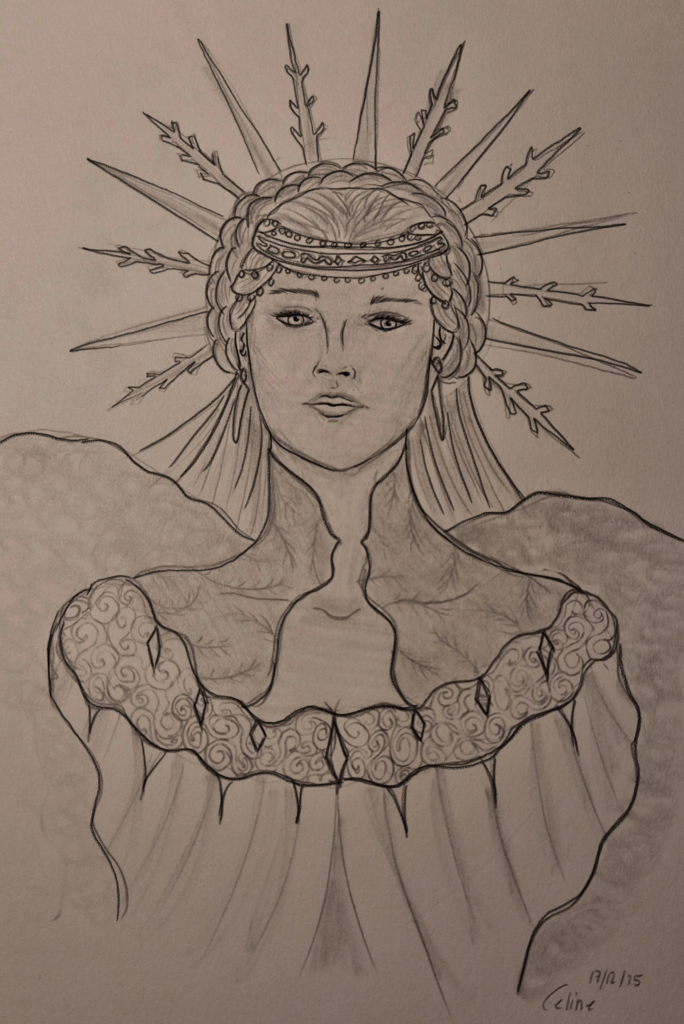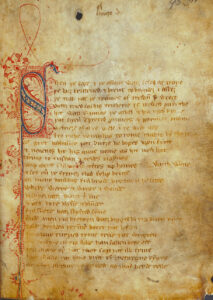Identifying Marlowe's Radicalism: A Response to Christopher Wessman
Anthony DiMatteo
Published in Connotations Vol. 9.3 (1999/2000)
Marlowe's Edward II offers as ripe a work of drama as one can imagine for bringing into the light of day how political theatre, that is, the politics of theatre and the theatre that is politics, functioned in early modern society. Through elaborate analogy and metaphor that regards Edward's body as symbolic of the sovereign body as such, Marlowe painstakingly penetrates the ruling fictions or fictions about the right to rule of his own day, tantalizing and nauseating audiences with an insider's view of how political power works (Fred Tromly). Christopher Wessman has amply identified one significant thread of this symbolism.
According to Wessman, Marlowe is writing "Actaeonesque History," not only a personal tragedy about one lamentable king. He exploits the multivalence of the myth of Actaeon to reveal "the supposedly pristine bodies natural and politic of the ruler" (7) as vulnerable, in conflict, and ideologically constructed. The play takes up this myth because Queen Elizabeth had become so conspicuously linked to the iconography of Diana. Edward, both an Actaeon and a Diana figure in the play, opens himself and the realm to penetration and transformation, "mutilation and dismemberment" (11). Wessman's reading richly indicates that the playwright was an astute observer of how early modern metaphors of the unity of state can become undone or parodically redone during times of political crisis. Marlowe thus possessed, according to Wessman, "a coherent political vision" (30). Grand affairs of the royal state are revealed as sordid affairs of human, all too human desire. Edward's lust for Pierce of Gaveston [→page 229] appears more than the tragic flaw of a king. It "pierces" or "overpeers" the state, with the language and props of the play creating complex, suggestive puns from the beloved Pierce's name (Wessman 19−23). The king's desire overdetermines affairs of the realm, as the dissenting nobles recognize, and threatens to expose the state as a misgoverning of the common weal. The sovereign body metaphorically makes a minion of the body politic. Not only Edward's will but royal sovereignty itself appears imposed from above, that is, without any weight in natural law.
In this essay, I would like to pursue Wessman's idea that Marlowe has a political vision. I will explore how the play subjects to a caustic dramatic process the metaphors that surround the conventional idea of the sovereign in his own space, "princeps in suo regno." The process brings into view a submerged network of relations that form a sexual and political economy of social practices, ceremonies and beliefs. Politics appears a form of sex, and sex an extension or victim or frustration of politics. By summoning this complex into the light of day, Marlowe appears a radical reader of sovereignty. His play seems "anti−Oedipal," to draw upon another ancient myth, supplementing Wessman's Actaeonesque reading, in the sense that it exposes the basis for political supremacy as imaginary and unnatural, stemming from "over−civil" or "over−civilized" constraints and taboos placed upon sexual desire. Sexual desire, however, "overpeers" the state the way Pierce of Gaveston "overpeers" the king and the nobles on account of the power that he obtains from the king's sexual desire for him. The real power is the power that desire has over all the characters in the play. Its frustrations and enablements turn all the characters into puppets or slaves of passion. The play implies that Pierce's power over the sovereign body of the king (and Mortimer's over the Queen) stems from the power that sexual desire or erotic love has over politics. Furthermore, and this is where the prospect of an uncanny or negative sublime comes into view, sexual desire in the play has its true domain like death in "countries yet unknown," as Mortimer terms his voyage into death out of the life dominated by "base fortune" (V.vi.59, 67). The fortune or political career of the mighty proves prey to the larger powers of sex and death, both of which beset and topple the sovereign body literally into mire. The body [→page 230] natural is a far more mysterious and terrifying thing in this play than anything that the state can control or manage. Sex and death shred any sense of a providential course of things. In this way, the play makes us see history through a glass so extremely dark that it begins to look back at us, showing us the vanity of our own faces in its mirror of magistrates when we thought perhaps we could make providential sense of it after all.
One might object here that to speak of Marlowe's supposed coherent political vision in terms of its focus upon psycho−political discontents is hopelessly anachronistic. On the other hand, how much theory would Marlowe have needed beyond Marsilio of Padua's denunciation of tyranny or Machiavelli's handbook for the Medici to have realized that the state is a kind of political "family romance," a relentless, strangely eroticized quest for the securing or "immortalizing" of power, an obsession for a phallic signifier or dynastic marker to outlast the corruptions of time? In Marlowe's own day, there were frequent articulations of a grand policy of the state to accredit itself with an absolute power through "translatio imperii," that is, to stake out or make real the claims of an imaginary though "legal" empire that stemmed from Alexander the Great to Caesar to the medieval Popes and Emperors and eventually to the absolutist kings of early modern Europe. This translation had its explicit early modern spokesmen. The important royalist historian Charles Du Moulin, for example, observed of the French monarch, "It is certain that the King of France, sovereign lord in his kingdom, has no less power than had Justinian the Great or other Emperors in their Empire" (quoted by J. W. Allen 285).
As double agent for Spain and England, playwright, scholar and rebel with notorious causes, Marlowe would have gotten to eat from all sides of the political table and learned the "kingly" truth of what it is to be made a subject and minion of such imaginary or "more than natural" power. Of all the Elizabethan poets and playwrights, it seems safe to say that he would have been the least intimidated by the idea of revolution as an unnatural upheaval, by what would have been called in his time "innovation." So many Marlovian creatures are, "surcharg'd with surfeit of ambitious thoughts" (The Massacre at Paris V.ii.24) and aware of how [→page 231] "policy hath fram'd religion," to quote the Guise (The Massacre at Paris I.ii.65). Marlowe's Guise was far from alone in understanding the need to veil and exploit the arbitrariness of political power in order to gain and hold it. As Machiavelli first described it and Giovanni Botero first named it, the state in the form of an absolute power to dispense privilege, tantalizing subjects into submission, had no other imperative than its own survival. This political imperative of the state as it applied to monarchy put the king above even his own laws, a long−lived imperial legal legacy in the West that I believe the play overtly calls into question. We see how Edward II and the nobles in the play act as if above the law, "soluti legibus," as Roman Law described the emperor's power, with disastrous consequences at all social levels for England's governance.
Marlowe's play through Mortimer Senior provides us with a convenient list of famous examples of the operations of such imperial privilege, suggesting a repetitive, uncanny pattern of sexual indulgence and abuse at the heart of royal or even aristocratic prerogative:
The mightiest kings have had their minions,
Great Alexander lovde Ephestion,
The conquering Hercules for Hilas wept,
And for Patroclus sterne Achillis droopt. (I.iv.391−94)
Such careers pierce the image of a unified nation or "family" of people with a mighty patriarch at the center, summoning into disturbing awareness the unnaturalness of how a nation is supposed to be a "living body, compact or made of sundry estates and degrees of men" (Elyot 1). That Mortimer's (and Marlowe's) examples are homoerotic of course would no doubt have met official legal scorn in late−sixteenth century English society. The great jurist Edward Coke spoke of non−reproductive sex as "that detestable abominable sin, amongst Christians not to be named" (quoted from Alan Bray by Tromly 123). In sharp contrast to this severe moral and legal climate, Claude Summers describes as unique in sixteenth−century English drama, "Marlowe's presentation of homosexual love in casual, occasionally elevated, frequently moving [. . .] terms." To Summers, Marlowe's "resolute failure to condemn homosexuality" appears more [→page 232] heterodox than his indifference to "comforting Tudor political myth" regarding sovereignty (222). Yet Marlowe's play seems bent not only at inviting stern indictments of "rugged foreheads" regarding questionable loves of the kind administered by Lord Burleigh, according to Spenser, to The Faerie Queene. It arguably appears determined to bring into shamefaced view what Tacitus termed the "arcana imperii." In other words, the play is fixed on, loosely speaking, deconstructing the royal prerogative itself. To do so, it dwells on, rather than glosses over, what Keith Wrightson has identified as a fundamental disunion of early modern English society, "its high degree of stratification, its distinctive and all−pervasive system of social inequality" (17).
This sovereign or imperial voluntas circulated in early modern Europe with a life of its own in the form of weighty Roman legal maxims that came to describe what kings thought they had the legal right to do: to cite two of many, "Quod jura in scrinio principis," and, "Quod principi placuit, legis habet vigorem" (Kantorowicz 146, 150, 153). Mortimer Senior precedes his list of famous minions with nearly a translation of the Roman formula by way of pointing out what Edward II as a king "solutus legibus" had the right to do anyway: "Let him without controulement have his will" (I.iv.390). Mortimer's son, having been, in his own words, "thrust" upon the Protectorship, echoes this line of his father, following it with a Latin aphorism:
And what I list commaund, who dare controwle?
Major sum quam cui posset fortuna nocere.
And that this be the coronation day,
It pleaseth me. (V.iv.68−71)
Such sovereign power or access to it, to no surprise, expressed itself in a range of legal and political fantasies, most notably in England with its strange but telling jurisprudential myth of the king's two bodies, one natural, one civil.
Marlowe's play works rather hard to induce embarrassment in its audience regarding this legal theory of the king's two bodies. It dramatizes the imperial pleasure principle that acted as the foundation of sovereign [→page 233] rule as a shameless indulgence in power. For example, Edward tells the nobles,
Make several kingdoms of this monarchy,
And share it equally amongst you all,
So I may have some nook or corner left,
To frolic with my dearest Gaveston. (I.iv.70−73)
The king appropriates the right to disunite the kingdom to salvage what he really wants, a place to frolic, suggesting that England was already far from being what John of Gaunt phrased, following official Tudor propaganda, "This earth of majesty, this seat of Mars" (Richard II, II.i.41). If the king had his way, it would be a bower of bliss for the pleasure of his own natural body. Edward II thus criminally violates what was in fact a traditional part of a king's coronation oath, a non−alienation pledge legally obliging kings, "to conserve the rights of their realm and the honor of their Crown," to use the formula of Baldus, influential commentator on the Roman Digest (Kantorowicz 357). Kantorowicz notes that the historical Edward II "seems to have referred, on one occasion, to an 'oath by which he had sworn to maintain the laws of the land and the estate of the Crown'" (357).
Through such frequently made expressions of the king's deepest desire, to serve only himself, the drama appears to reverse the imaginary process rooted in ceremony and decree through which the rights of sovereignty were created in early modern Europe. In other words, the play dispossesses kingship and nobility of natural and legitimate supremacy over the land that they are entrusted with as stewards of the realm. This symbolic approach opens up the play to a deep structural reading of its plot, language and imagery. The instrument of the king's horrid death, for example, can be read as an inverted stake to sovereign claim, a kind of negative "padrÕes," to use the Portuguese term for pillars of demarcation that usually bore the king's sign, designating "legal" claim to "virgin" land, described in European law as "res nullius" or "terra nullius" (Keller et al. 24−25). At his career's end, however, King Edward's body, specifically his fundament, appears capable of being wickedly seized by just about [→page 234] anybody, making the king seem the reverse of "princeps in suo regno." The point is underscored by Marlowe's assigning the assassination by anal insertion to one "Lightborne," a character without precedent in Raphael Holinshed's account of the king's death. The closest we come to a description of Lightborne's "degree of person" is when he tells Mortimer,
I learned in Naples how to poison flowers,
To strangle with a lawne thrust through the throte. (V.iv.31−32)
Considering how he applies these "Spanish" skills to an English king's body, one can appreciate how they have prepared Lightborne for his own style of sovereign dispossession, a kind of negative variation on the "turf and twig" ceremony that was the customary English practice of taking sovereign possession over "unclaimed" bodies of land (Keller et al. 56−57). In Lightborne's case, he comes to take charge of a sovereign body not on a map or table of the world but under one. "Lay the table downe, and stampe on it," he instructs Matrevis and Gurney.
Tromly notes (114) the many exits in the play of the king, nobility and prelates taken off stage to prison, torture or worse by low−ranking soldiers, "masterless men" or even "natural born slaves," to invoke Aristotle's idea of political hierarchy. The low−born, thus, like Lightborne, have a signifying power to "pierce" the body politic. In other words, Marlowe's play attempts to decapitate the legitimacy of kingship and court, to expose its joint hierarchical assumptions as a political body unnatural. The King's relation to Pierce is a synecdoche for how the state loves its own powers, "unnaturally" divorcing itself from a productive stewardship of the nation and nature.
Ironically, Edward's spurned queen of royal blood, Isabella, sister of a Valois King of France, makes the justification of kingship in terms of a sustained use of the political discourse of magistracy. As the proverbial mother of the nation, it seems fitting that she be assigned this role. As mother of Edward's son, she advanced the course of the Plantagenet dynasty that would last beyond Marlowe's own Queen, Elizabeth I. Yet she is a very questionable speaker of the traditional discourse of English sovereignty. The fact that she is French, of course, and accused of having [→page 235] Mortimer as her lover perhaps would have called to the minds of Marlowe's contemporaries the not−so−long−ago aborted match of Queen Elizabeth with the French nobleman who had courted her, Alençon, Duc d'Anjou. Possible contemporary allusions aside, in the play, the queen's foreignness and her eventual betrayal of Edward to Mortimer, allowing her husband to be killed, and not assisting her brother−in−law Kent's attempts to free him from the dungeon, implicate her and the conventional discourse she speaks. Her sustained speech comes at a point in the play when she has finally abandoned Edward for Mortimer:
When force to force is knit, and sword and gleave
In civill broiles makes kin and country men
Slaughter themselves in others and their sides
With their owne weapons gorde, but what's the helpe?
Misgoverned kings are cause of all this wrack,
And Edward thou art one among them all,
Whose loosnes hath betrayed thy land to spoyle,
And made the channels overflow with blood,
Of thine own people patron shouldst thou be. (IV.iv.5−13)
She is appealing to the traditional theory of sovereignty and the king's rights and duties through a just dominion over his land and people. She takes up this theory again shortly afterwards when she offers a providential reading of the violence in the play, addressing Mortimer and her son:
Succesfull battells gives the God of kings,
To them that fight in right and feare his wrath:
Thankes be heavens great architect and you.
Ere farther we proceede my noble lordes,
We heere create our welbeloved sonne,
Of love and care unto his royall person,
Lord warden of the realme. (IV.vi.18−25)
Yet this providential reading rapidly comes undone when her "welbeloved sonne" has her taken off to the Tower and her beloved Mortimer beheaded, with his head placed atop that of the coffin of his father, a grotesque emblem of the dead body politic that has tortured the body natural, the common weal, throughout the play.
[→page 236] The fact that her son, King Edward III, commits her to the Tower, it can be argued, furthers the sense of the unnatural effect of the sovereign body upon that of the natural body and its natural kin relations. The King acknowledges this natural body and the emotion it rouses in his last words in the play:
Awaye with her, her wordes inforce these teares,
And I shall pitie her if she speake againe. (V.vi.84−85)
Of course, Isabella does speak again. She asks if she could, "with the rest accompanie him [Edward II] to his grave" (V.vi.88). Her son Edward, however, does not grant the pity that he just said he would and asserts his own "innocencie," the purity of his grief for his father, not her's. He claims the right to frustrate her Antigone−like natural right to bury and mourn for kin. The play subjects him to a risk in doing so. He is in danger of seeming most tyrannical just after the ceremony of his coronation or "apotheosis" as king has occurred. This ceremony theoretically bestowed upon his natural body a "legally" deathless body.1) However, just when this sovereign body of a king is supposed to be assumed by the Prince, we find him frustrating the social rights of maternal mourning.
One can read this as Marlowe's attempt to make visible a mechanism at the heart of the political body that alienates a person from his or her own natural body, replacing it with an imaginary "body without organs," a politicized "desiring−machine" that cannot weep or leak in any way (Deleuze and Guattari 9−15, 309, 326). In the early modern terms of the play, there is a perceivable wedge or divide or piercing in which the natural and the sovereign body exhibit a conceptual and emotional conflict between themselves. In his first act as king, the new king is worried that he appears to act unnaturally. Just after the time he has taken on his sovereign body and in his first use of it, he disallows or nullifies a natural right of maternal mourning and sends his mother off to the Tower, summoning up memory of how his other parent died and why. Perhaps, Marlowe is indicating a poison at the root of sovereignty which is being exposed as a strange family romance at the top of society and thus throughout the body politic.
[→page 237] This is one way to read why the play ends the way it does. The newly enthroned king has apparently violated one of his own mother's natural rights, a human right to mourn that Hugo Grotius in De Jure Belli ac Pacis would soon recognize as one of the principle laws of nations (Grotius 450−461). This is certainly how Mortimer would have argued legally had his voice survived his beheading. The close of the play is part of a drama−long process representing what David Bevington and James Shapiro call, "the decay of ceremony." Death and decay are symbolized by a breakdown of ceremonies in the play, prominent among which is "ceremonial mourning and the ways in which it is violated" (273). At the close of the drama, the sovereign body cannot seal itself off from death, cannot seal off from itself or appropriate for itself all the power of mourning despite the legal fiction regarding sovereignty that claims it is without death.
However, Bevington and Shapiro would seal off Edward III's final act in the play from such sovereign erasure. They argue that the play's end symbolizes how Edward III restores order and ceremony by conspicuously directing attention to the inner purity of his mourning for his dead father. He welcomingly restores an imperial order of things. His act has an Aeneas−like quality to it in its pure filial piety that pays reverence to the deceased father. His act of mourning, supposedly, is more natural and pure than his mother's. The pollution at the heart of the sovereign family has been expurgated or expunged, and thus the play conserves finally what it had been attacking or calling into corrosive questioning all the time.
If one wants to argue that Marlowe's play conservatively focuses on just the sorry plight of one individual king, not impugning the very concept of a sovereign body, then indeed, one would presumably point to the promise at the end of the play when the successful King Edward III becomes sovereign of the realm. In this reading, the play "places strong visual emphasis on [Edward's] proper mourning" (Bevington and Shapiro 274). One could say he has remained a touchstone of filial piety in the play, only his nonage preventing him from playing the role of an Aeneas to his father, rescuing him from the burning flames of a ruined empire to "translate" or carry on his paternal will beyond what fortune has wrought. As Prince, he remained loyal to his father, repeatedly worried over his [→page 238] absence, and most concerned, also, about the welfare of his father's brother, Kent. Despite these natural feelings of love for his father, Edward as Prince and King is forced until the very end of the play to support Mortimer by his mother. She has been the unnatural one all along. When he finally asserts himself and orders the death of Mortimer, he breaks free from his mother's control over him and rescues sovereignty from those unworthy of it. An Elizabethan audience would remember how his "sacred blood" would be well preserved in his own seven sons, one of whom, the first Duke of York, would be the ancestor of Elizabeth I. Thus, the sovereign body phoenix−like has reinstated itself. And Marlowe's apparent radicalism has been purged from the literary canon of masterpieces.
Yet the cost of such dynastic continuity Marlowe has most memorably inscribed in blood, misery and tears in this canon. Indeed, Edward III walks off the stage with, "teares distilling from mine eyes" (V.vi.101). He asks his tears to, "be witnesse of my greefe and innocencie." He symbolically appeals to the body natural to give evidence of the purity of his sovereign intent and will. But with this "innocencie," the play's last word, the audience has to entrust the king because his words alone cannot make it appear. In other words, the apparent unnatural cruelty to his mother can be "over−ruled" only by appeals to natural−law or international standards of human behavior outside what the king alone can will. The king's body appears decidedly bound by natural and "international" laws that no man can legislate into being.
At the play's end, a king's body stands mute before us. We have to feel and judge its innocence. The sovereign cannot decree this innocence into being. Nothing, apparently, can give indelible proof of the superior virtue that the king theoretically and legally was assumed to possess in the "apotheosis" of his sovereign political power. Nothing can because it is utterly imaginary and yet legal, or, to restate the contradiction, both legal and unjust like "legal" theft. Without the arbitrary entrustment or conspiracy of his audience, the king's moral legitimacy appears to end, or at least his sovereign justice and innocence can go no farther. It stands circumscribed and it leaks, going off into mourning outside its will to control.
[→page 239] Through such stress on the natural opacity of the body that requires shared or recognized feelings for it to be perceived as natural in the social view, the play's ending is consistent with what the drama has been doing all along. It exposes the high degree of vulnerability the sovereign body has to forces that can plague and upend us all, from the lightly to the weightily born. Political hierarchy appears a very questionable thing in view of what nature has wrought inside the obstructing bodies of men that no sovereign gaze can pierce, finding its natural limit there.
New York Institute of Technology
Works Cited
Axton, Marie. The Queen’s Two Bodies: Drama and the Elizabethan Succession. London: Royal Historical Society, 1977.
Bevington, David and James Shapiro. “What are kings, when regiment is gone?: The Decay of Ceremony in Edward II.” A Poet and filthy Play−maker: New Essays on Chris− topher Marlowe. Eds. K. Friedenreich, R. Gill and C. Kuriyama. New York: AMS Press, 1988.
Deleuze, Gilles and Felix Guattari. Anti−Oedipus: Capitalism and Schizophrenia. Minnea− polis: U of Minnesota P, 1983.
Elyot, Sir Thomas. The Book Named the Governor. New York: Dent and Dutton, 1962.
Grotius, Hugo. The Law of War and Peace. Trans. Francis Kelsey. New York: Bobbs− Merrill, 1925.
Kantorowicz, Ernst. The King’s Two Bodies: A Study in Medieval Political Theology. Prince− ton: Princeton UP, 1957.
Keller, Arthur; Oliver Lissitzyn, and Frederick Mann. Creation of the Rights of Sovereignty through Symbolic Acts 1400−1800. New York: Columbia UP, 1938.
Marlowe, Christopher. The Complete Works of Christopher Marlowe. Ed. by Fredson Bowers. Cambridge: CUP, 1973.
[240] Miller, David Lee. The Poem’s Two Bodies: The Poetics of the 1590 Faerie Queene. Princeton: Princeton UP, 1988.
Summers, Claude. “Sex, Politics and Self−Realization in Edward II.” “A Poet and a Filthy Play−maker”: New Essays on Christopher Marlowe. Eds. K. Friedenreich, R. Gill, and C. Kuriyama. New York: AMS Press, 1988.
Tromly, Fred. Playing with Desire: Christopher Marlowe and the Art of Tantalization. Toron− to: U of Toronto P, 1998.
Wessman, Christopher. “Marlowe’s Edward II as ‘Acteonesque History,'” Connotations 9.1 (1999−2000): 1−33. http:⁄⁄www.connotations.uni-tuebingen.de⁄wessman00901.htm.
Wrightson, Keith. English Society: 1580−1680. London: Hutchinson, 1982.
































 Ring out, wild bells, to the wild sky,
Ring out, wild bells, to the wild sky,


















